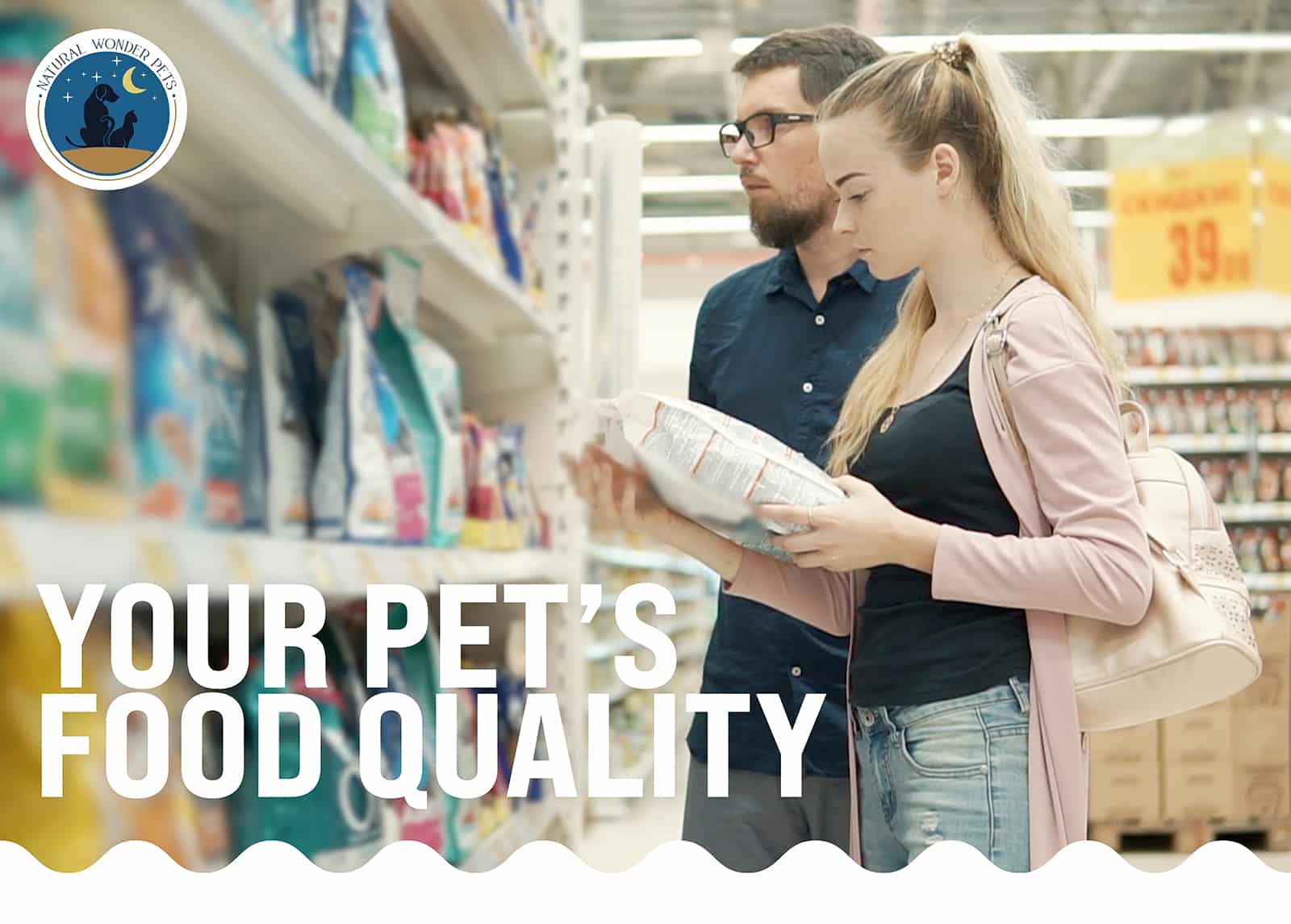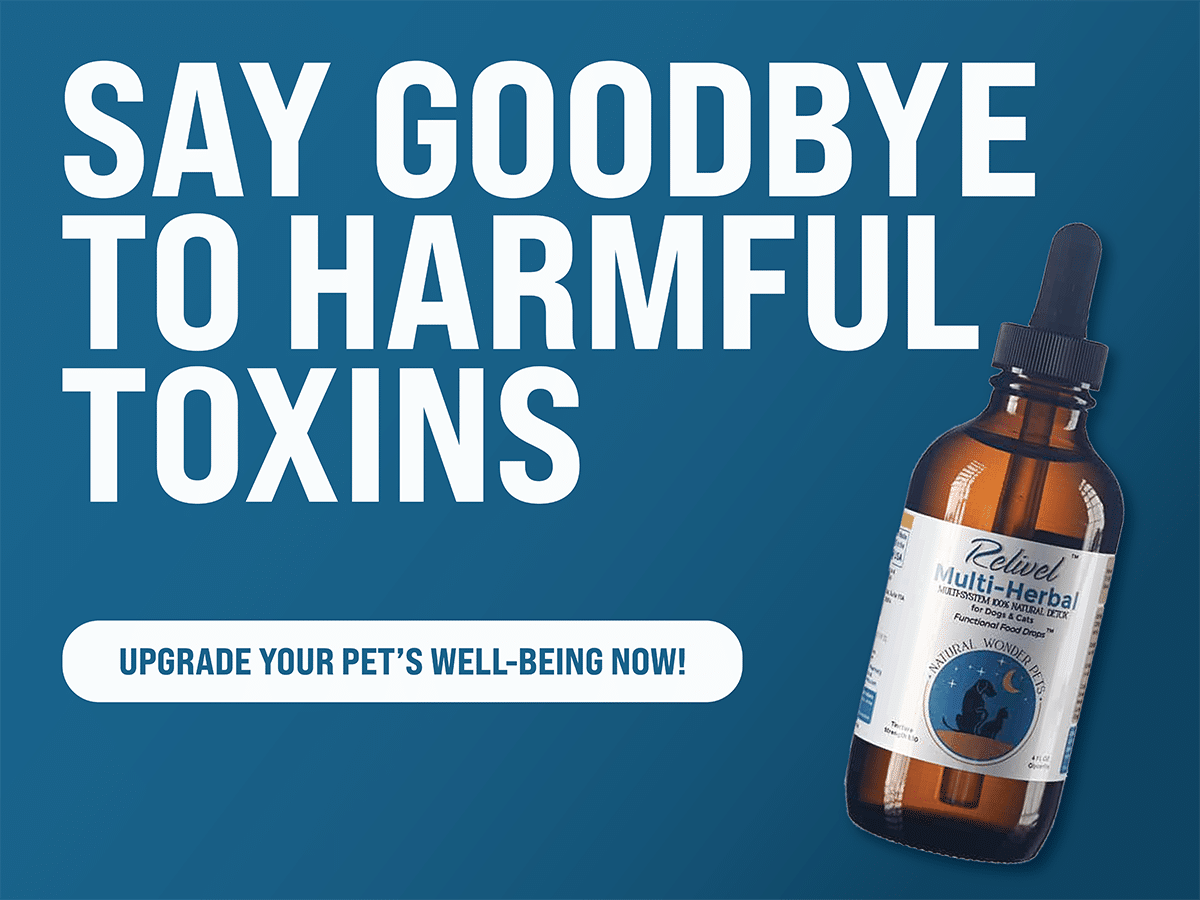
6 Ways to Assess Your Pet’s Food Quality
As pet enthusiasts and devoted companions to our furry friends, we hold the sacred duty of providing them with nothing short of culinary excellence. Think of it as being their personal gourmet chef, crafting meals fit for royalty. But here’s the kicker: it’s not just about filling their bowls with any old kibble; it’s about curating a menu that nourishes their body, mind, and soul. We’re all about detoxing your pet naturally, and we continually advocate for uncovering the transformative power of upgrading their food quality to do so. Now, let’s embark on a delicious journey to unravel the secrets of pet nutrition, empowering you to become the master chef of your pet’s well-being.
Grab your apron and sharpen your discerning palate, because we’re about to give you the tools to assure your pet is getting top-notch cuisine. Plus, you’re not going to want to miss out on an exclusive 20% discount offer on our magical Relivel Multi-Herbal Detox solution.
1. Read the Ingredients List
The ingredients list serves as a roadmap to the nutritional value of your pet’s food. Look for whole, recognizable ingredients like deboned chicken, salmon, sweet potatoes, and brown rice. These ingredients are rich in essential nutrients and antioxidants that support your pet’s liver health by aiding in detoxification processes and promoting overall well-being.
A study published in the Journal of Veterinary Diagnostic Investigation found that dogs fed diets containing higher levels of antioxidants, such as vitamin E and selenium, exhibited improved liver function compared to those on diets lacking in these nutrients.
2. Check for a Complete and Balanced Nutrition Statement
Ensure the pet food you select meets the nutritional standards set by reputable organizations like the AAFCO or FEDIAF. Look for statements indicating the food is “complete and balanced” for your pet’s specific life stage. A well-balanced diet supports your pet’s gastrointestinal tract by providing a blend of fiber, prebiotics, and probiotics to promote healthy digestion and nutrient absorption.
Just like humans, gut health in our pets is critical in helping them live the most balanced and healthy life. Research suggests that diets containing fermentable fibers, such as beet pulp and chicory root, can enhance the growth of beneficial gut bacteria in dogs and cats, leading to improved gastrointestinal health.
3. Evaluate the Protein Content
Protein is a vital macronutrient for dogs and cats, contributing to muscle maintenance, immune function, and overall health. Look for foods with high-quality protein sources listed prominently on the ingredients list, such as deboned chicken, turkey, or fish. Adequate protein intake supports your pet’s kidney health by helping to maintain proper kidney function and preventing the formation of urinary crystals or stones.
In fact, the Journal of Feline Medicine and Surgery found that cats fed diets containing higher levels of protein and lower levels of carbohydrates had a reduced risk of developing chronic kidney disease compared to those on diets with lower protein content.

4. Consider Additives and Preservatives
Avoid pet foods containing artificial additives, colors, and preservatives, as these may have adverse effects on your pet’s health. Instead, opt for natural preservatives like mixed tocopherols (vitamin E) or ascorbic acid (vitamin C). Additionally, seek out foods with added vitamins, minerals, and antioxidants to support your pet’s skin health and coat condition, reducing the risk of skin allergies and irritations.
There has been research that suggests that dietary supplementation with omega-3 fatty acids, commonly found in fish oil, can improve skin barrier function and reduce inflammatory skin conditions in dogs and cats.
5. Be Mindful of Allergens
Pets, like humans, can develop food allergies or sensitivities over time. If your pet experiences digestive issues, skin problems, or other health concerns, consider switching to a limited ingredient diet or one with novel protein sources. This can help identify and eliminate potential allergens from their diet, promoting better overall health and well-being.
A study published in the Journal of the American Veterinary Medical Association found that dogs with food allergies experienced significant improvement in clinical signs when switched to a novel protein diet compared to traditional diets containing common allergens like beef or chicken.

6. Research the Brand’s Reputation
The sad truth is that not all pet food brands prioritize quality and transparency. Take the time to research the company behind the product. Look for brands with a history of rigorous quality control measures, transparent sourcing practices, and a commitment to pet health and nutrition. Customer reviews and testimonials can also provide valuable insights into the efficacy of the product. Consider consulting with your veterinarian to see what pet food brands demonstrate transparency in ingredient sourcing, manufacturing processes, and nutritional research.
Like any choices we’re faced with in life, we want to be able to make informed decisions. When it comes to your dog and cat’s food choices, doing the necessary research can make all the difference. Investing in high-quality pet food today can lead to a lifetime of better health and happiness for your beloved furry companions.
Discovering the impact of environmental toxins on pets’ well-being is crucial. Upgrade their nutrition with high-quality, organic food and treats, and incorporate Relivel™ Multi-Herbal Multi-System Liquid Detox to cleanse and nourish your furry friends from the inside out.
SALE EXTENDED! Use code PROTECT20 for 20% off Relivel™ Multi-Herbal Multi-System Liquid Detox. Offer expires 04.07.2024!

